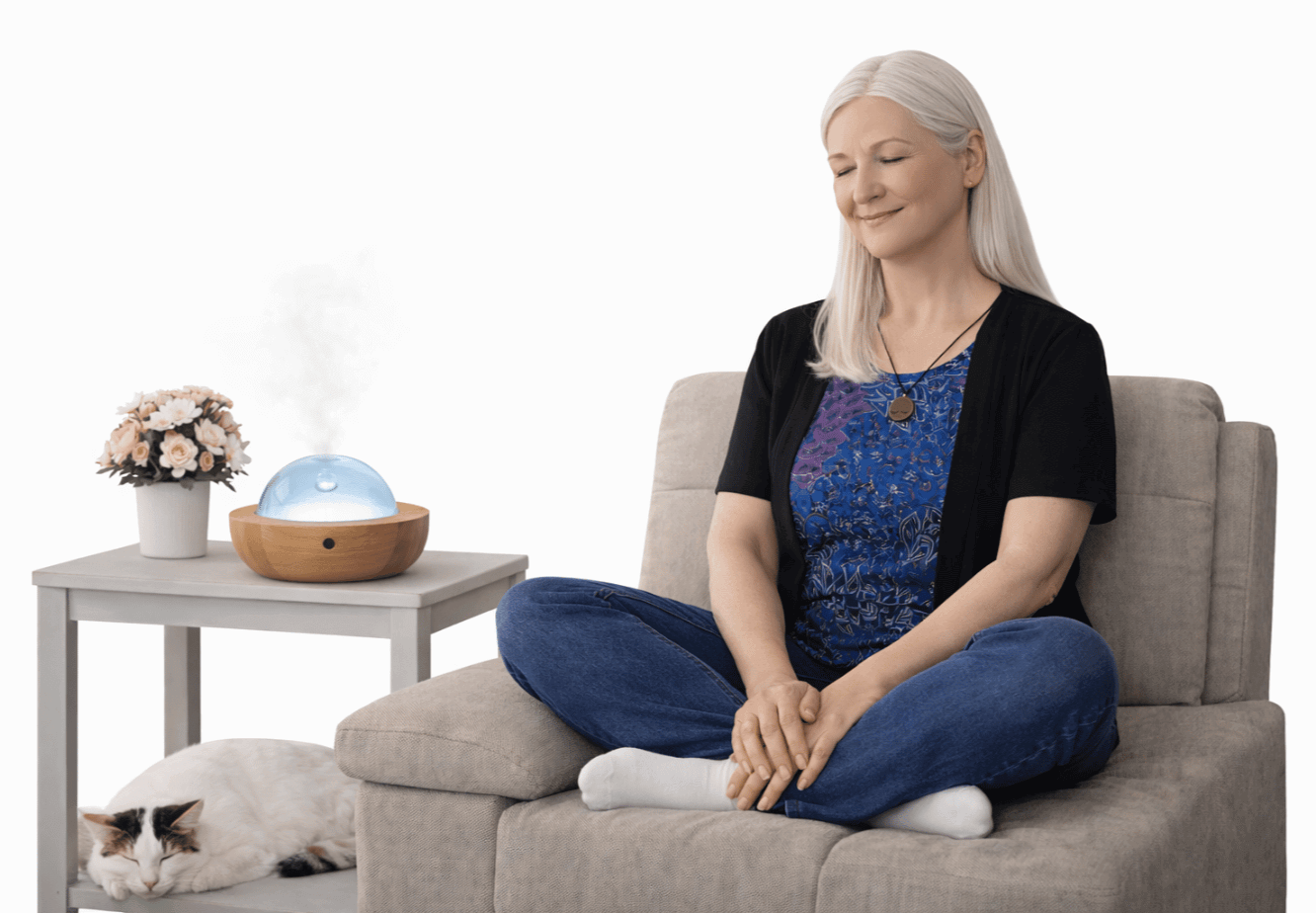
In the hustle and bustle of daily life, many Christians seek deeper connections with their faith, whether through reflective prayer or active service in their communities. Essential oils, particularly pure unadulterated oils, provide a natural bridge that fosters both introspection and energetic engagement. But have you ever wondered why these aromatic oils are so effective? Let's delve into the science behind essential oils and how they can uniquely benefit Christians during periods of reflection and active service.
The Chemistry of Essential Oils
Essential oils are concentrated plant extracts that capture the natural compounds of their source plants. Typically obtained through distillation or cold pressing, these oils harbor the pure essence of plants, including their aroma and beneficial properties.
The efficacy of essential oils lies in their complex chemical compositions. For instance, lavender oil contains linalool and linalyl acetate, which have been studied for their calming effects. Similarly, peppermint oil is rich in menthol, known for its invigorating properties. When inhaled or applied topically, these compounds interact with the body's systems in remarkable ways.
The Olfactory System and Limbic Brain
The olfactory system, responsible for our sense of smell, plays a crucial role in how essential oils affect us. When you inhale an essential oil, its molecules travel through the nose and bind to olfactory receptors. These receptors send signals directly to the olfactory bulb, which is connected to the limbic brain – the emotional center of the brain.
The limbic system includes structures like the amygdala and hippocampus, which are integral to emotion regulation and memory formation. This direct pathway explains why certain scents can instantly trigger memories or emotional states. For Christians, diffusing essential oils such as frankincense during prayer can evoke a sense of peace and spiritual connection, making it easier to focus on God's presence.
Reflection: The Calming Effects of Essential Oils
One of the core practices for Christians is reflective prayer and meditation. During these moments, essential oils can create an atmosphere that encourages peace and concentration.
Lavender essential oil (the oil of tranquility) is highly regarded for its calming properties. Studies have shown that inhaling lavender can reduce anxiety and improve mood. The active compounds in lavender interact with the neurotransmitter gamma-aminobutyric acid (GABA), which helps to inhibit nerve transmission in the brain, promoting a calming effect. Diffusing lavender oil during your quiet time with God can help soothe the mind and enhance a sense of spiritual clarity.
Frankincense (the Sacred Scent) has a long history in religious rituals and is often mentioned in the Bible. Scientifically, it has anti-inflammatory and stress-reducing properties. The boswellic molecules in frankincense have been shown to influence the brain's limbic system positively. Diffusing frankincense during prayer can help Christians enter a state of reflection and communion with God more effortlessly.
Active service is another vital component of Christianity, whether it's volunteering, mentoring, or participating in community outreach. Essential oils can provide the vitality and motivation needed for these activities.
Peppermint (the invigorating powerhouse) is renowned for its invigorating effects. The menthol in peppermint interacts with the body's cold receptors, providing a cooling sensation and stimulating an increase in alertness and energy. Inhaling peppermint essential oil before engaging in active service can help enhance focus, boost energy levels, and maintain enthusiasm throughout the task.
Citrus essential oils like lemon, orange, and grapefruit (oils of joy and positivity) are rich in limonene, a compound known for its antioxidant and mood-enhancing properties. These oils stimulate the production of serotonin, a neurotransmitter that contributes to feelings of well-being and happiness. Diffusing citrus oils in shared spaces during community service activities can create an uplifting atmosphere that encourages positivity and cooperation.
The Role of Topical Application
Besides inhalation, topical application is another effective way to harness the benefits of essential oils. Essential oils can be absorbed through the skin and enter the bloodstream, where they can exert their effects. For instance, applying diluted oils like eucalyptus or tea tree on the skin not only offers aromatic benefits but also supports physical well-being, which is crucial for demanding service activities.
When applying oils topically, dilution with a carrier oil such as coconut or jojoba oil is important to prevent skin irritation. For example, applying a blend of peppermint and rosemary essential oils on the temples and wrists can provide mental clarity and sustained energy during physically demanding tasks.
Scientific Studies Supporting Essential Oils
The scientific community has increasingly validated the benefits of essential oils. Research in many journals highlight the potential of essential oils to alleviate stress, improve focus, and enhance overall well-being. For instance, studies have found that participants exposed to peppermint essential oil experienced improved cognitive performance and mood. Other studies revealed that inhaling frankincense essential oil could reduce symptoms of anxiety and depression, further supporting its use in promoting mental and emotional balance.
Integrating Essential Oils into Christian Practices
To effectively incorporate essential oils into your Christian practices, consider the following tips:
1. Diffusion during Prayer and Worship: Use a diffuser to disperse calming oils such as lavender or frankincense during your prayer or worship sessions. This helps create a serene environment that fosters deeper reflection and connection with God.
2. Personal Diffusing for On-the-Go: Apply a drop of essential oil to your hands and breathe in the aroma to support focus and energy. These can be especially useful before engaging in ministry work or community service.
3. Topical Applications for Physical Support: Prepare roll-ons with essential oils diluted in a carrier oil to apply on pressure points. Blends like peppermint and rosemary can provide physical and mental support during demanding activities.
4. Ambient Diffusion in Community Spaces: Diffuse uplifting oils such as citrus blends in common areas during group activities to enhance the mood and create a positive environment.
For a deeper dive into this topic, tune into my podcast, "In the Know with Rev Paula Behrens," where we explore the story of Martha and Mary and discuss how believers can integrate essential oils to alleviate anxiety and enhance moments of contemplation. Don't miss out on the insights and practical advice!
The synergy between faith and science is beautifully illustrated in the use of essential oils. These natural plant extracts offer Christians valuable tools to deepen their spiritual practices and excel in their service to others. By understanding the scientific mechanisms behind essential oils, believers can make informed choices that enhance their well-being and spiritual life.
Whether you're seeking peace and clarity during reflection or energy and focus in active service, essential oils from Young Living provide a God-given, natural way to achieve your spiritual and physical goals.

Christian Women Empowerment





















0 Comments